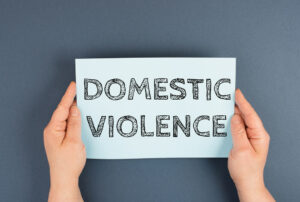Determining What Constitutes Domestic Violence in New Jersey
Skilled Lawyers Outlining the Legal Definition of Domestic Violence in Middletown and throughout NJ

If you have been accused of domestic violence in New Jersey, it is critical that you enlist the help of an experienced New Jersey domestic violence defense lawyer early in the process in order to work towards the most advantageous outcome possible in your case, up to the potential dismissal of the charges against you. Contact our legal team immediately at (908)-336-5008 to find out how we can aggressively defend your case, assemble the necessary evidence and arguments in your favor, and fight tooth and nail to refute the abuse accusations against you.
If you are also facing a restraining order filed on the grounds of an act of domestic violence, our lawyers handle the entirety of these cases, including court hearings in Family Court and Criminal Court throughout New Jersey in Monmouth County, Somerset County, Middlesex County, Bergen County, Hudson County, and everywhere in between. If you need to file domestic violence charges or a restraining order and ensure that they hold up in court, our attorneys know how to help with achieving your goals too. Get a no-cost, no obligation consultation with an attorney by contacting us today.
What Falls under New Jersey’s Prevention of Domestic Violence Act?
In New Jersey, crimes of domestic violence are governed by New Jersey’s Prevention of Domestic Violence Act. Under the Act, there are 19 different offenses that may be classified as “domestic violence” depending on the identity of the parties involved. These offenses include assault, sexual assault, criminal sexual contact, stalking, harassment, cyber harassment, terroristic threats, criminal trespass, false imprisonment, kidnapping, robbery, burglary, lewdness, criminal mischief, contempt of a domestic violence order, criminal coercion, any acts that risks causing serious bodily harm or death, and homicide.
A criminal charge for a domestic violence offense often follows from a 911 call placed by an alleged victim, resulting in an arrest of the alleged perpetrator. There are other circumstances under which a domestic violence arrest may result, but an officer can only make an arrest if they have probable cause that a domestic violence offense was perpetrated by the defendant, a no-contact order was violated, or there is a warrant for the defendant’s arrest. When these offenses are committed against an individual who is protected under New Jersey’s PDVA, certain additional victim protections are in place, and some special procedural rules apply to the case.
How do You Know if it’s a Domestic Violence Case in NJ?
In order for the New Jersey Domestic Violence Act to apply, the victim and defendant must have a specific relationship. They can be individuals who are married, separated, divorced, or living together currently or in the past. They could also be individuals who are dating or previously dated or that have or are expecting a child together. It is also important to note that the defendant must be 18 years of age or older or be an emancipated minor for the act to apply.
What Happens at the Beginning of a Domestic Violence Case in NJ?
Charges can be filed where the alleged crime occurred, where the victim or defendant reside, or where the victim is currently staying or sheltering. If you have been arrested for domestic violence in New Jersey, you will typically have a detention hearing, whether you are charged with a disorderly persons offense or an indictable offense, within 24 to 48 hours after your arrest. At the detention hearing, the judge will review a Public Safety Assessment (PSA) to determine whether you should be detained, released with conditions, or released without conditions. You have the right to be represented by an attorney at this hearing and present a defense arguing that their release would not create a danger to the victim.
 What Happens when Someone is Convicted of Domestic Violence in New Jersey?
What Happens when Someone is Convicted of Domestic Violence in New Jersey?
If you are found guilty of a crime of domestic violence in New Jersey, the sentence you may be subject to depends on the type of crime and degree of the offense you are convicted of. If you are convicted of a disorderly persons offense like simple assault, then you will face up to 6 months in county jail.
Indictable offenses carry more severe penalties. Fourth degree offenses, such as aggravated assault for recklessly causing bodily injury with a weapon, carry potential imprisonment of up to 18 months. Third degree offenses, such as terroristic threats, may result in prison terms of three to five years. If you are convicted of a second degree offense like sexual assault, you may face prison time of five to ten years. Finally, offenses such as aggravated sexual assault are first degree crimes and carry potential imprisonment of up to 20 years.
Contact a Zealous Domestic Violence Attorney in New Jersey Without Hesitation
If you are facing allegations of domestic violence in New Jersey, it is very important that you seek the assistance of a skilled and experienced domestic violence defense lawyer who is highly knowledgeable about and effective in assessing the strength and admissibility of the evidence against you. On the other hand, if you need protection and want the utmost representation in securing a final restraining order against an offender in NJ, let us assist with securing the court’s help and any additional relief you need. To receive complimentary consultation about your case, contact our team of New Jersey domestic violence attorneys today by calling (908)-336-5008. We service clients in Clifton, Newark, Somerville, Millburn, Elizabeth, Little Falls, Totowa. and throughout NJ.




